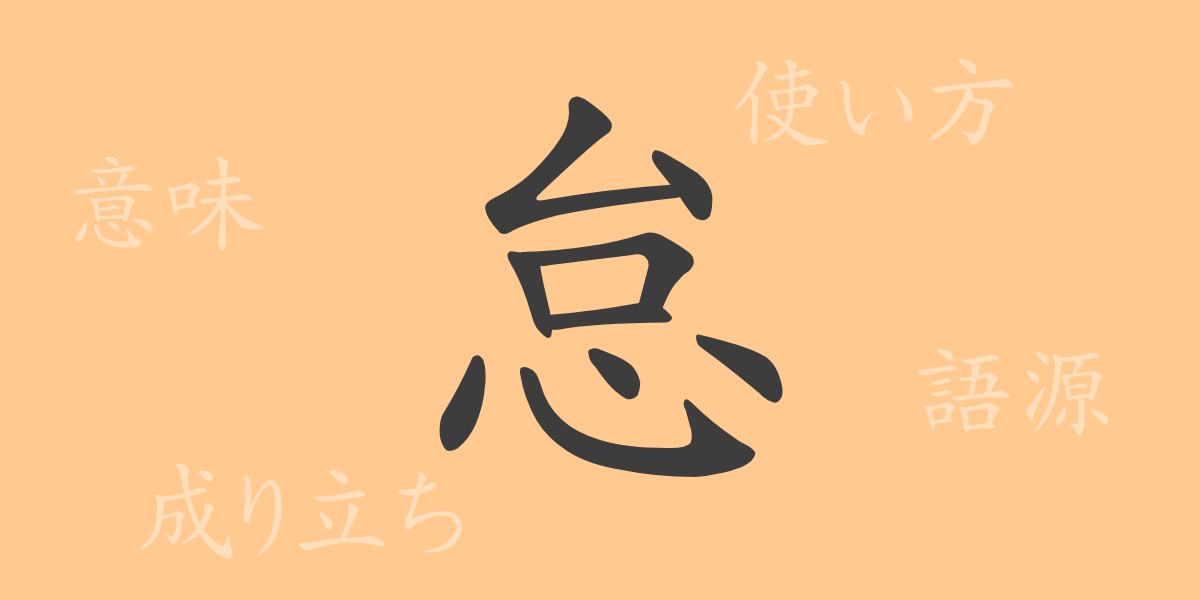Japanese characters reflect the depth of history and culture, with each Kanji encapsulating unique meanings. Among them, the commonly used Kanji ‘怠’ (タイ) (tai), deeply embedded in everyday life, will be explored in this article. We will delve into the origins, meanings, and usage of ‘怠,’ along with related phrases and proverbs, to uncover the profound world it represents.
Origin of ‘怠’ (tai)
The Kanji ‘怠’ originated from ancient China, depicted initially as a person lying down with hands spread, symbolizing inactivity. Over time, this character evolved to express not only physical inactivity but also concepts such as laziness and negligence. This evolution illustrates how Kanji can convey not only physical actions but also abstract ideas.
Meaning and Usage of ‘怠’ (tai)
‘怠’ primarily means ‘to neglect,’ ‘to be lazy,’ or ‘to slack off.’ It is used in Japanese to describe negligence in activities like work or study, or a lack of action where one is expected. It also extends to expressing a passive attitude towards responsibilities or obligations.
Readings, Stroke Count, and Radical of ‘怠’ (tai)
Let’s examine the structural details and readings of the Kanji ‘怠’:
- Readings: On’yomi ‘タイ’ (tai), Kun’yomi ‘おこたる’ (okotaru), ‘なまける’ (namakeru).
- Stroke Count: ‘怠’ consists of 9 strokes.
- Radical: The radical of ‘怠’ is ‘心’ (こころ) (kokoro), associated with the heart, linking it to mental effort or lack thereof.
Phrases and Idioms Using ‘怠’ (tai) and Their Meanings
There are many idioms and phrases that include ‘怠’, each with its unique meaning:
- ‘怠け者’ (なまけもの) (namakemono) – A lazy person.
- ‘怠慢’ (たいまん) (taiman) – Negligence or dereliction of duty.
- ‘怠惰’ (たいだ) (taida) – Laziness or idle nature.
- ‘怠けるに如かず’ (なまけるにしかず) (namakeru ni shikazu) – A proverb meaning nothing is as comfortable as being lazy.
Conclusion on ‘怠’ (tai)
The Kanji ‘怠’ not only represents the act of being lazy but also embodies attitudes towards responsibilities. It is used variably in the Japanese language, highlighting the complexity of expressions and the richness of the language. Understanding the nuances of ‘怠’ can enhance our communication, reflecting how word choice can significantly influence perceptions and actions.

























